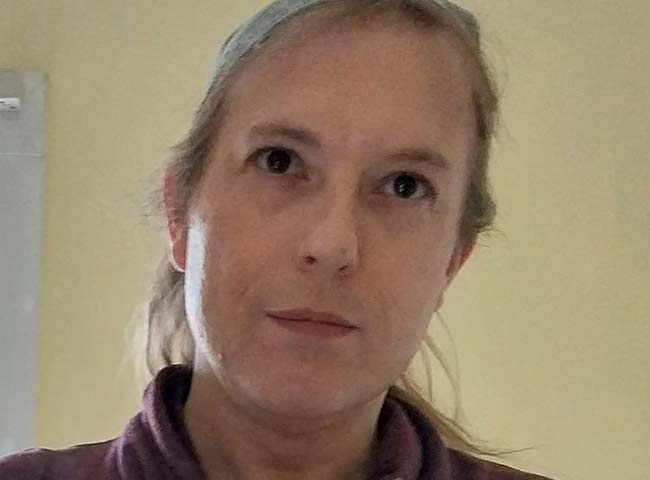Meet Ada

Ada's story
Electrolysis Support Fund recipient
Ada (she/her) is a 44-year-old disabled trans woman who recently had to leave her ten-year job when her temporary disability ran out due to a lifetime struggle with mental illness. This eventually made it impossible for her to continue working. Currently, Ada has no income or savings, and her application for disability benefits was denied. She is awaiting a hearing, which can take over a year, and even an unsuccessful attempt to work could ruin her disability application.
Living in a small town in Ohio with limited access to resources, Ada needs to prioritize any money she gets for legal name and gender change while she can. "My skin is badly irritated by shaving," she shares, explaining her struggle. Ada cannot afford quality razors, and her sensitive skin suffers as a result. Covering the poor shave with makeup is also a financial hardship.
Receiving support for facial hair removal would greatly alleviate Ada's discomfort and financial burden. It would eliminate the need for constant shaving and the associated skin irritation and cost of makeup. This support is crucial for Ada's well-being and confidence, allowing her to focus on her transition and navigate her current financial and health challenges with greater ease.
Ada's timeline
-
Award Granted
April 12, 2024
Ada was awarded a grant toward permanent hair removal!
-
Care Received
July 24, 2024
A payment has been made toward Ada's permanent hair removal!
-
Care Received
October 17, 2024
A payment has been made toward Ada's permanent hair removal!
-
Care Received
December 5, 2024
A payment has been made toward Ada's permanent hair removal!
-
Care Received
March 17, 2025
A payment has been made toward Ada's permanent hair removal!
About Hair Removal: Femme Award
On average, it costs $2,300+ for Ada's care.
- What is it?
- Before care
- After care
What is it?
Point of Pride provides grants to trans femme people seeking hair removal on their face, neck, or an area of the body in preparation for bottom surgery.
What is life like for a person who needs this care?
For trans femme folks, particularly trans femmes of color, access to facial hair removal often equates to safety against anti-trans violence or discrimination. It's common for applicants to note issues with employment and public safety, particularly if their facial hair is dark or thick. Electrolysis and laser hair removal services are often deemed cosmetic and therefore not covered by health insurance plans.
What is the impact of this care on the recipient’s life?
Access to hair removal often leads to a more positive emotional well-being, increased confidence, increased safety when in public, and better opportunities at employment and more.
Your support funds healthcare that's
life-changing. Life-saving. Life-giving.